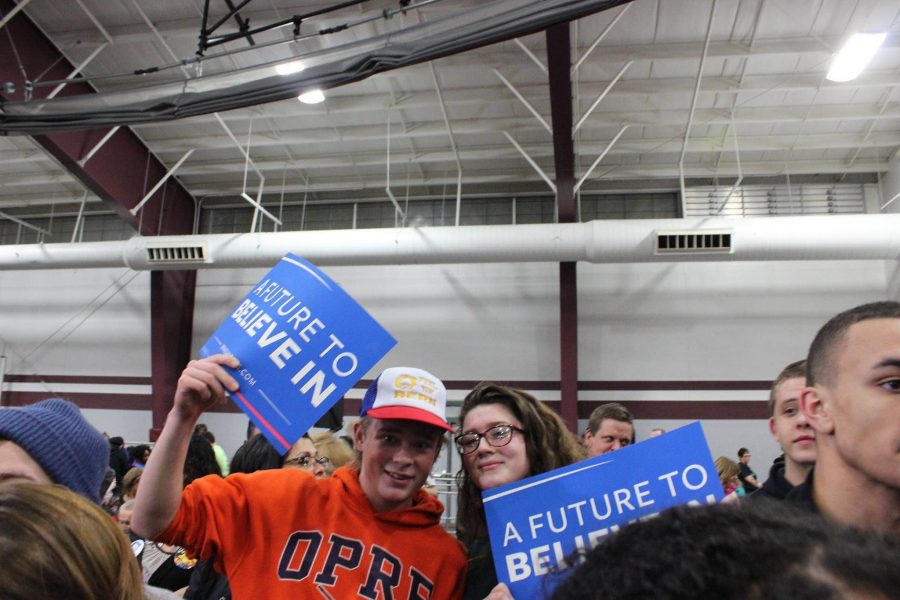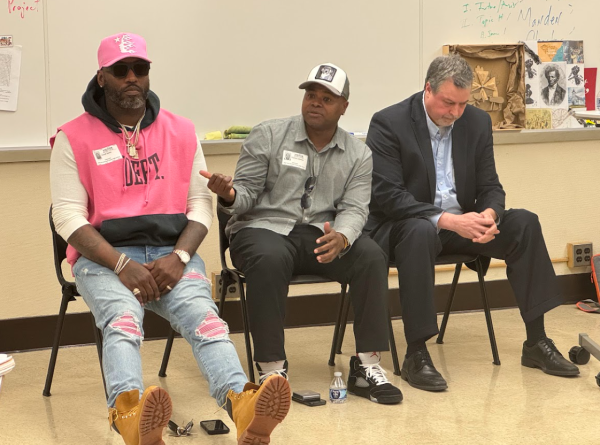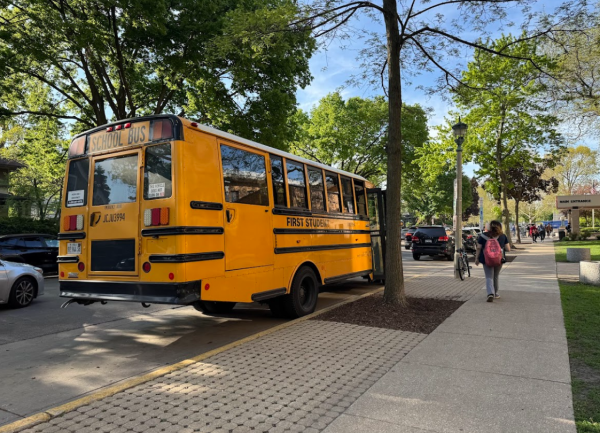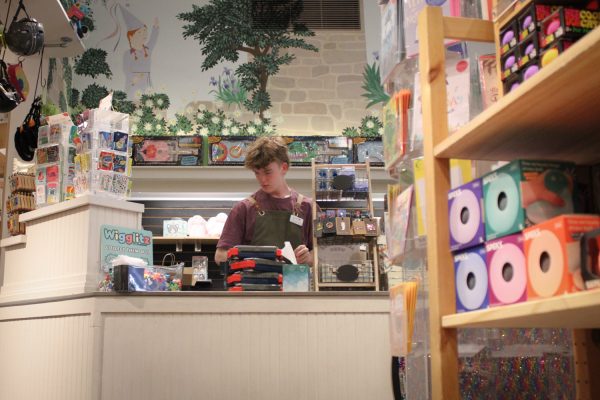(Third) Party on, America
Unpopular candidates create demand for outsiders
This presidential election has been one for the ages.
Donald Trump, the Republican nominee, and Hillary Clinton, the Democratic nominee, are the two presumable choices, but according to a Los Angeles Times poll one in five voters are still undecided for whom they will cast their ballot.
“Both of the candidates suck,” said Alex Lavery, a politically involved senior. “With Donald Trump you could make the argument that he’s racist and has no idea what he’s doing in politics…and the words corrupt and liar come to mind with Hillary Clinton.”
This dissatisfaction is not unique to Lavery. Widespread discontent, particularly among young people, exists for both mainstream candidates. Since 1980, national services have polled people on the favorability of presidential candidates as well as their voting preferences, with typical unfavorable ratings somewhere around 20 percent.
This year, the political blog fivethirtyeight reported that 37 percent of voters find Clinton strongly unfavorable, while a whopping 53 percent find Trump strongly unfavorable. Among young people, these numbers are even higher.
Senior Veronica Thomas, who has worked on campaigns and plans to serve as an election judge, attributes the morals of young people to their political dissatisfaction. “Because we’ve grown up in an age of political correctness and really learning how…to imagine what other people are going through, candidates who aren’t addressing the nation as a whole are troubling,” she said. “We are ready for everyone to have their views addressed.”
Lavery sees this discontentment in a slightly different light. “The current establishment does not get anything done,” he said. “They can’t compromise on a budget, gun control, or any impactful climate change legislation.”
Many young people thought they had found the perfect candidate in Bernie Sanders, a progressive senator from Vermont who came out of nowhere and seriously challenged Clinton for the Democratic nomination.
Thomas was an outspoken supporter of Sanders, doing various unofficial social media outreach for the campaign and even attending a couple events for him, including a rally held at Argo High School in Summit.
“The rally was so energetic; it was actually one of the most positive experiences of my life,” Thomas said. “Oak Park is liberal to a kind of ignorance where we don’t really challenge our own beliefs…and it was so cool (at the rally) to have this gathering of progressives who recognize that the fight for justice is never over.”
Thomas cites the environment, economic disparity, racial inequality, and gender inequality as the most important issues for her this election, issues that Sanders discussed in his campaign. “He had a rally in Oregon and some Black Lives Matter protesters shut it down, but instead of saying no and stopping them he heard them out,” Thomas said. “It’s super important to have someone who is willing to do that.”
Not everyone, however, was a big fan of the Bern. “His campaign has gotten younger people more involved in politics, but he didn’t have a lot of empiricism or any raw facts to back up his plans,” said senior Benny Paris. “It’s a little risky to play the game of saying ’I am going to do all this stuff’ without having any plan how to do it.”
Sanders eventually lost the nomination, leaving these fervent Bernie supporters and other disaffected young people with two undesirable presidential options. Some, like Thomas, are sucking it up and voting for Clinton. “As soon as Bernie endorsed Hillary, I was sad, but it was time to move on,” she said.
Others are turning to third-party candidates. The first is Jill Stein of the Green Party, a doctor-turned-activist who leans far left-wing. The other is Gary Johnson of the Libertarian Party, a businessman and politician who was the Republican governor of New Mexico in the 1990s. Both candidates also ran for president in 2012 as the representatives of their respective parties.
Lavery is a supporter of Johnson. “I agree with most of his stances, and I think some of his more outlandish libertarian ideas will not get passed through Congress,” he said.
Paris is also planning on voting for Johnson. “I see him as a responsible guy,” he said. “His record as a Republican governor in a Democratic state is good, and he balanced the state budget.”
Neither of the third-party candidates have much support nationally, however, despite some of the more extreme postings on social media. A Sept. 11 poll conducted by ABC News and the Washington Post found only nine percent of voters support Gary Johnson and two percent of voters support Jill Stein.
In an election survey of OPRF students conducted by the Trapeze, these numbers were even lower. Of the 74 people surveyed, only three said they would vote for Gary Johnson, and only one said they would vote for Jill Stein.
Because of these statistics, some see a third-party vote as irresponsible. “In a perfect world you could vote for anyone…but we have a bipartisan system,” said Thomas. “I would feel like I’m wasting my vote.”
“I think this would be the year where third-parties start gaining steam,” said Lavery, “but two (third-party) candidates is not good because it splits the vote.”
Paris disagrees with this idea. “A vote is not just a piece of data, and it’s not just you adding your number to a list; it’s a philosophical representation of what you believe in and the country that you want to see,” he said. “I take issue with the idea that you can’t vote with your conscience.”
Even though young people remain divided on who to vote for in the presidential election, there are multitudes of other elections in which people will vote. “We should pay attention to non-presidential elections because the President is limited by what Congress does,” Thomas said. “Local elections are just as important too.” These elections, although they have garnered less coverage, are arguably as influential in people’s lives, and some see a path to third-party relevance in these local elections.
With a little over a month left before the election, the stage is set for a possible major shift in American politics, spurred on by the rising concerns of young people disillusioned with the current political system. “We’re the generation that has to fix all the other generations’ problems,” said Lavery, “and right now we’re being left with nothing.”






